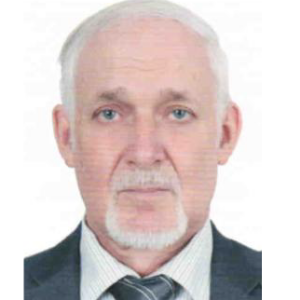Title : Structured catalysts Of biofules transformation into syngas: Design and performance
Abstract:
Efficient, inexpensive and stable to coking nanocomposite catalysts for transformation of natural gas/biogas/biofuels into syngas and hydrogen were developed comprised of nanoparticles of metals/alloys (Ni, Co, Pt, Ni+Pt, Ni+Ru) supported on perovskites (La1-xPrxMn1-yCryO3-d, CaTiO3), fluorite Ln-Ce-Zr-O (Ln = La, Pr, Sm), rutile (Ln)TiO2 and spinel MnxCr3-xO4 oxides and their nanocomposites with a high oxygen mobility and reactivity, either bulk or supported on doped MgAl2O4 with ordered mesoporous structure. Pulse microcalorimetry and transient kinetic studies (including SSITKA and FTIRS in situ for estimation of rate constants of reaction steps) revealed that mechanism of biofuels transformation on these catalysts can be described by a bifunctional red-ox scheme with activation of fuel molecules on Me/oxide sites and oxidants (H2O, CO2, O2)- on reduced sites of the oxide support. Fast diffusion of surface oxygen (bridging M2O) species to the Me/support interface provides the efficient transformation of activated fuel species into syngas by incorporation into C-C bond, thus preventing coking. Effect of the active component composition, specificity of the surface sites and nature of oxidant on mechanism of biofuels transformation into syngas was elucidated. Preparation procedures of active components were optimized to provide nanostructures ensuring high oxygen mobility and developed metal-support interface. Metal substrates for structured catalysts based on Ni-Al(C) foams, Fechraloy foils/honeycombs, gauzes and microchannel platelets were covered by protective La2Zr2O7 - LaAlO3 layers sintered by e-beams. Layers of optimized active components were supported on these substrates from suspension, and after drying were sintered either in the furnace or by e-beams. Structured catalysts were tested in pilot reactors in steam, dry, partial oxidation and autothermal reforming of biofuels at short contact times using concentrated feeds. A high yield of syngas approaching equilibrium and stable performance without coking were demonstrated even for such fuels as glycerol, acetic acid, acetone, sunflower and turpentine oils, better for the case of catalysts sintered by e-beams. Mathematical modeling demonstrated absence of any heat transfer limitations due to a high thermal conductivity of substrates. No spallation or cracking of the active component layers supported on substrates was revealed. Reactors equipped with internal heat exchanger were designed allowing stable and efficient operation in the autothermal mode of the mixture of natural gas and liquid biofuels at feeds inlet temperatures <50oC. Support by the Russian Science Foundation grant 23-73-00045 is gratefully acknowledged.
Audience Take Away
- The audience will be able to use this information in going from atomic-scale features of the catalysts structure to pilot-scale testing of structured catalysts performance in biofuels reforming.
- This provides a practical solution to problem of the efficient transformation of biofuels into syngas and hydrogen required by the concept of green energy.
- It will provide new information to assist in design of energy-efficient catalytic reactors for biofuels reforming.



